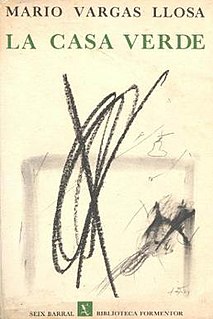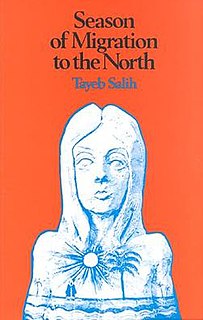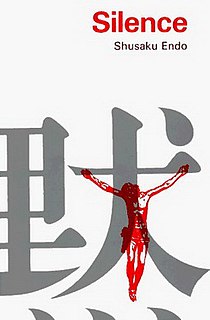 W
WAdrift on the Nile is a 1966 book by Egyptian author and Nobel Laureate Naguib Mahfouz. The novel was later made into a 1971 film, Chitchat on the Nile.
 W
WBeyond Sleep is a novel by the Dutch writer Willem Frederik Hermans, published in February 1966. The protagonist, Dutch geologist Alfred Issendorf, has a geology dissertation in preparation, and embarks on an expedition to Finnmark, northern Norway, to verify his dissertation director's theory that craters in the local landscape were formed by meteor impacts rather than by Ice Age glaciers. Initially he is accompanied by a group of three Norwegian students of geology, but soon after two travel their own course Alfred loses his guide Arne, who falls to his death, and is then on his own in a land where the sun never sets.
 W
WCasualties of Peace, published in 1966, is Irish writer Edna O'Brien's fifth novel.
 W
WThe Cat Who Could Read Backwards is the first novel in Lilian Jackson Braun's The Cat Who... series, published in 1966.
 W
WChike and the River is a children's story by Chinua Achebe. It was first published in 1966 by Cambridge University Press, with illustrations by Prue Theobalds, and was the first of several children's stories Achebe would write. The latest reprint has a cover design by Victor Ekpuk.
 W
WDeath and the Dervish is a novel by Meša Selimović, published in 1966. The novel was made into a 1974 feature-length film of the same name.
 W
WThe Doctor's Wife, known in Japanese as Hanaoka Seishū's Wife , is a noted novel by Sawako Ariyoshi written in 1966.
 W
WDona Flor and Her Two Husbands is a fantasy novel by Brazilian writer Jorge Amado, published in 1966; it was translated into English by Harriet de Onís in 1969. The novel was adapted for the first time into the 1976 film Dona Flor and Her Two Husbands.
 W
WEfuru is a novel by Flora Nwapa which was published in 1966 as number 26 in Heinemann's African Writers Series, making it the first book written by a Nigerian woman, in fact, any African woman, to be published internationally. The book is about Efuru, an Igbo woman who lives in a small village in colonial West Africa. Throughout the story, Efuru wishes to be a mother, though she is an independent-minded woman and respected for her trading ability. The book is rich in portrayals of the Igbo culture and of different scenarios which have led to its current status as a feminist and cultural work.
 W
WThe Green House is the second novel by the Peruvian writer Mario Vargas Llosa, published in 1966. The novel is set over a period of forty years in two regions of Peru: Piura, a dusty town near the coast in the north, and Peruvian Amazonia, specifically the jungle region near the Marañón river.
 W
WA Hall of Mirrors is a 1966 novel by the novelist Robert Stone. Set in 1960s New Orleans, the book depicts "the dark side of America that erupted in the sixties" and follows a number of characters who are tied to a right-wing radio station, the civil rights movement, and 1960s counterculture. The book won the 1967 William Faulkner Foundation Award for notable first novel, a predecessor of the PEN/Faulkner Award for Fiction, and the Houghton Mifflin Literary Fellowship Award.
 W
WHard Rain Falling is a 1966 crime novel written by Don Carpenter. The novel was Carpenter's first published book, and follows the adventures of Jack Levitt, an orphaned teenager living off his wits in the fleabag hotels and seedy pool halls of Portland, Oregon.
 W
WHell Has No Limits is a 1966 novel written by Chilean José Donoso. The novel is set south of the Chilean capital, Santiago, in a small town near the regional center of Talca. It tells the story of a bordello, and details the prostitutes' way of life. The main character is Manuela, the transgender woman who owns the bordello. A number of other memorable characters are introduced. The novel was well received, and Donoso himself considered it his best work: "the most perfect, with fewest errors, the most complete".
 W
WThe Late Bourgeois World is a 1966 novella by Nadine Gordimer. The novel follows an egocentric White South African woman, as she negotiates a failing marriage, "half-hearted' love affairs and political intrigue. The novel was banned by the Censorship board in South Africa.
 W
WLokotown and Other Stories is a collection of nine short stories by Nigerian author Cyprian Ekwensi, published in 1966 as the 19th volume in the African Writers Series. Looking at Nigerian city life, his stories show excitement and dissolution.
 W
WA Man of the People (1966) is a novel by Nigerian writer Chinua Achebe. Written as a satirical piece, A Man of the People follows a story told by Odili, a young and educated narrator, on his conflict with Chief Nanga, his former teacher who enters a career in politics in an unnamed fictional 20th century African country. Odili represents the changing younger generation; Nanga represents the traditional West African customs, inspired by that of Achebe's native Nigeria. The book ends with a military coup, similar to the real-life coup organized by Major Chukwuma Kaduna Nzeogwu, Major Adewale Ademoyega, Major Emmanuel Ifeajuna, Captain Chris Anuforo, Major Donatus Okafor, and Major Humphrey Chukwuka.
 W
WMarks of Identity is a 1966 novel by the Spanish writer Juan Goytisolo. It was published in Mexico through Editorial Joaquín Mortiz. It is the first installment in the Álvaro Mendiola trilogy, which also includes Count Julian and Juan the Landless.
 W
WMurder in Canton is a gong'an detective novel written by Robert van Gulik and set in Imperial China. It is a fiction based on the real character of Judge Dee, a magistrate and statesman of the Tang court, who lived roughly 630–700.
 W
WThe Origin of the Brunists is Robert Coover's first novel. It tells the story of Giovanni Bruno, the lone survivor of a mine disaster that killed 97 of his co-workers, and the apocalyptic cult that forms around him.
 W
WParadiso is a novel by Cuban writer José Lezama Lima, the only one completed and published during his lifetime. Written in an elaborately baroque style, the narrative follows the childhood and youth of José Cemí, and depicts many scenes which resonate with Lezama's own life as a young poet in Havana. Many of the characters reappear in Lezama's posthumous novel Oppiano Licario, which was published in Mexico in 1977.
 W
WThe Phantom of the Temple is a gong'an detective novel written by Robert van Gulik and set in Imperial China. It is a fiction based on the real character of Judge Dee, a magistrate and statesman of the Tang court, who lived roughly 630–700.
 W
WRaven's Cry is a 1966 novel by Christie Harris, and illustrated by Bill Reid. The book tells the tale of how the Haida people and their culture were "pushed to the edge of extinction", through the story of the Eagle chief Albert Edward Edenshaw, uncle of Charles Edenshaw. Harris acknowledged the assistance she received from the anthropologist Wilson Duff.
 W
WSeason of Migration to the North is a classic postcolonial Arabic novel by the Sudanese novelist Tayeb Salih, published in 1966, and the novel for which he is best known. It was first published in the Beirut journal Hiwâr. The main concern of the novel is with the impact of British colonialism and European modernity on rural African societies in general and Sudanese culture and identity in particular. His novel reflects the conflicts of modern Sudan and depicts the brutal history of European colonialism as shaping the reality of contemporary Sudanese society. Damascus-based Arab Literary Academy named it one of the best novels in Arabic of the twentieth century. Mawsim al-Hijrah ilâ al-Shamâl is considered to be an important turning point in the development of postcolonial narratives that focus on the encounter between East and West.
 W
WShadow from Ladakh is a novel by Bhabani Bhattacharya first published in 1966 by Crown Publishers. The book is set with the Sino-Indian War as a backdrop and tackles various issues include China's presence in Tibet as well the more local social and moral elements of life. The mixture of humour and interactions of the characters in a war setting provides the novel a nuanced approach.
 W
WSilence is a 1966 novel of theological fiction by Japanese author Shūsaku Endō, published in English by Peter Owen Publishers. It is the story of a Jesuit missionary sent to 17th century Japan, who endures persecution in the time of Kakure Kirishitan that followed the defeat of the Shimabara Rebellion. The recipient of the 1966 Tanizaki Prize, it has been called "Endo's supreme achievement" and "one of the twentieth century's finest novels". Written partly in the form of a letter by its central character, the theme of a silent God who accompanies a believer in adversity was greatly influenced by the Catholic Endō's experience of religious discrimination in Japan, racism in France, and a debilitating bout with tuberculosis.
 W
WSpring Snow is a novel by Yukio Mishima, the first in his Sea of Fertility tetralogy. It was published serially in Shinchō from 1965 to 1967, and then in book form in 1969. Mishima did extensive research, including visits to Enshō-ji in Nara, to prepare for the novel.
 W
WTo Each His Own is a 1966 detective novel by Leonardo Sciascia in which an introverted academic, in attempting to solve a double-homicide, gets in too deep, with his naive interference in town politics.
 W
WA Tract of Time is an antiwar novel from 1966 by Smith Hempstone, that covers the time period about 1960, when there was an attempted coup of South Vietnamese President Ngo Dinh Diem. Even as the United States backed Diem's government during the war, its American advisers worked with the Montagnard people who opposed Diem, to help them fight the Viet Cong, whom they also opposed. The book follows one CIA operative, Harry Coltart, as he works with the Montagnard mountain tribesmen in the Central Highlands. Harry is initially successful in getting the Montagnards to fight against the Viet Cong, but then the Montagnards are betrayed and South Vietnamese troops are sent in. Harry has to be rescued as the Montagnards join the Viet Cong.
 W
WVerukal is a Malayalam semi-autobiographical novel written by Malayattoor Ramakrishnan in 1966. It is widely credited as one of his best works. It won the Kerala Sahitya Akademi Award in 1967.
 W
WThe White Guard is a novel by 20th-century Russian writer Mikhail Bulgakov, famed for his critically acclaimed later work The Master and Margarita.